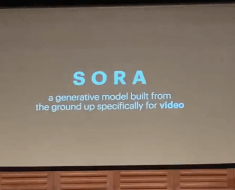AI in Radiation Oncology: The Emergence of Large Language Models
Artificial intelligence (AI) has been making significant strides in various fields, and healthcare is no exception. Recently, a new study has evaluated the performance of various large language models (LLMs) in the field of radiation oncology. The highlight of the study was OpenAI’s GPT-4-turbo, which outperformed other models with 74.2% correct answers, showing its potential to complement medical training. However, the study also underscored the need for rigorous validation of LLM-generated information and expert oversight in their application in medical education and practice.
Autocontouring: A Leap Forward in Radiotherapy Planning
The study evaluated an AI-based algorithm specifically designed for autocontouring prior to radiotherapy in head and neck cancer. This process involved outlining tumour and organs at risk during radiation therapy planning. The study analysed 108 patients with head and neck cancers and found that the mean score for autocontouring was 3.56 +/- .40. The AI segmented autocontouring performed well, with significant time-saving benefits. It proved to be clinically usable with no or minor edits the majority of times, thus underscoring the efficiency and reliability of AI in enhancing radiotherapy planning for head and neck cancer.
AI Rad Companion VA 30 AASH: An AI Algorithm for Autocontouring
A multi-institutional study was conducted to evaluate an AI algorithm, known as AI Rad Companion VA 30 AASH, for auto segmentation of the head and neck nodal contouring. The study analysed 108 patients with various subsites of head and neck cancer. The automated nodal contours were evaluated and scored, with most levels being clinically usable with no or minor edits. The mean time to manually contour was reduced from 18.6 minutes to just 5.05 minutes using AI. The study concluded that the AI algorithm was clinically usable with no or minor edits most of the times for all levels, except VIIA, thus highlighting the potential of deep learning-based autocontouring to reduce variability and time required in contouring for head and neck cancers.
AI in Medical Training: The Future is Here
The study’s findings suggest a future where AI aids in improving patient outcomes, particularly in radiation oncology. OpenAI’s GPT-4-turbo shows that AI can complement medical training, potentially revolutionizing education and practice in this field. However, it is important to remember that while AI is a powerful tool, it is not a replacement for human expertise. Rigorous validation of AI-generated information, along with expert oversight, is crucial to ensure safe and effective implementation in medical education and practice. The future of healthcare looks promising with the integration of AI, and it is expected to bring significant improvements in patient outcomes and healthcare delivery.


![[2211.03818] Retrieval augmentation of large language models for lay language generation [2211.03818] Retrieval augmentation of large language models for lay language generation](https://aigumbo.com/wp-content/uploads/2023/12/arxiv-logo-fb-235x190.png)

